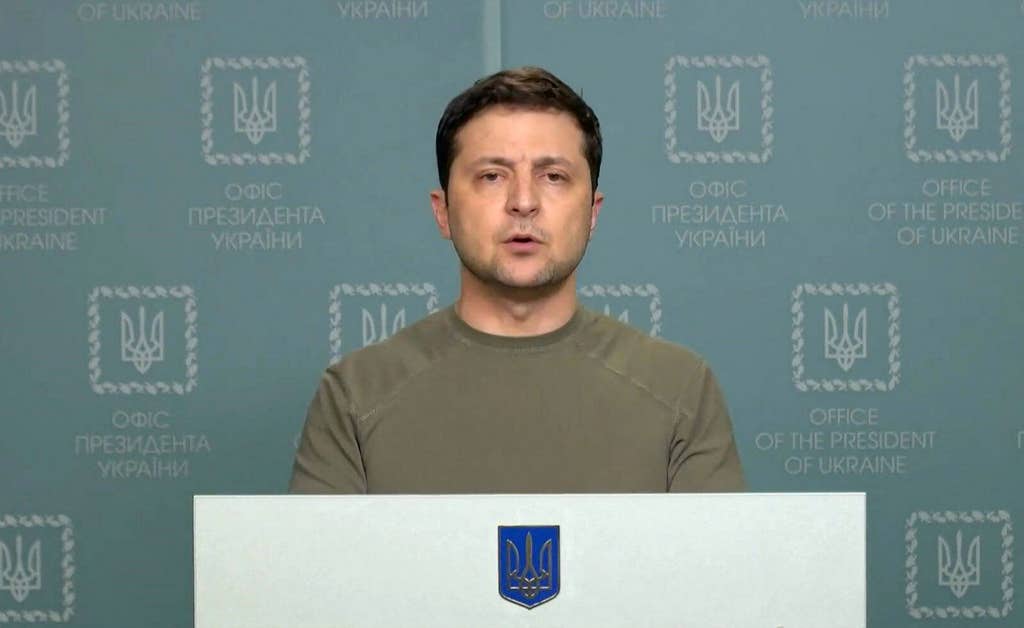Ukraine’s President Volodymyr Zelensky signed yesterday his country’s application for membership in the EU in the middle of fierce resistance against the Russian invasion and Russian troops advancing to the capital city Kyiv.
In a tweet yesterday, he wrote that he had a phone conversation with European Commission President Ursula von der Leyen where he discussed Ukraine’s EU membership: “Talked about concrete decisions on strengthening Ukraine's defence capabilities, macro-financial assistance and Ukraine's membership in the #EU”.
Von der Leyen, who in a statement on Sunday said that, “President Zelensky's leadership and his bravery and the resilience of the Ukrainian people are outstanding and impressive”, repeated in an interview EU's solidarity with Ukraine. "We want them in," she added.
But she has not the competency to commit EU to deal swiftly with Ukraine’s application as the presidents of 8 EU member states requested in a joint statement (Bulgaria, Czech Republic, Estonia, Latvia, Lithuania, Poland, Slovakia and Slovenia).
In fact, there is no “fast track procedure” for joining the EU. There is no mentioning of it in Article 49 of the Treaty on European Union which establishes how a country can join the EU.
According to article 49 , “Any European State which respects the values referred to in Article 2 and is committed to promoting them may apply to become a member of the Union”.
“The European Parliament and national Parliaments shall be notified of this application. The applicant State shall address its application to the Council, which shall act unanimously after consulting the Commission and after receiving the consent of the European Parliament, which shall act by a majority of its component members.”
Currently, EU-Ukraine relations are regulated by an Association agreement which was signed in 2014 and concluded in 2017. The agreement is the main tool for bringing Ukraine and the EU closer together, promoting deeper political ties, stronger economic links and the respect of common values.
The deep and comprehensive free trade area (DCFTA) is the economic part of the agreement. It offers a framework for modernising Ukraine's economy and trade relations. EU has already replaced Russia as Ukraine’s main trade partner.
But the way to EU membership is long and even the candidate countries in Western Balkans do not know if and when they will be admitted to the Union. This depends on the reforms they are required to implement – especially in the areas of the rule of law, anti-corruption and public administration - in order to meet EU’s conditions for membership.
Ukraine is in the middle of a war fighting desperately for its independence, sovereignty and territorial integrity against an unprovoked Russian invasion which has been condemned by the EU in the strongest term. It needs every kind of support - economic, political and militarily - to survive as an independent nation.
A quick and positive EU response to Ukraine’s application would no doubt send an important signal and bolster Ukraine’s morale but may also affect the chances to a cease-fire. Russia does not only oppose Ukrainian membership in NATO but also in the EU. European Council President Michel commented that there are different opinions in the Council about Ukrainian EU membership at this stage.
At yesterday’s press conference in Brussels, the European Commission referred to the Council. Ukraine’s EU application has reportedly been received by the Council and the French EU Presidency and it is now up to them to deal with it. The Commission does not intend to comment on the merits of Ukraine’s application until the Council has decided to ask for its opinion.
M. Apelblat
The Brussels Times

